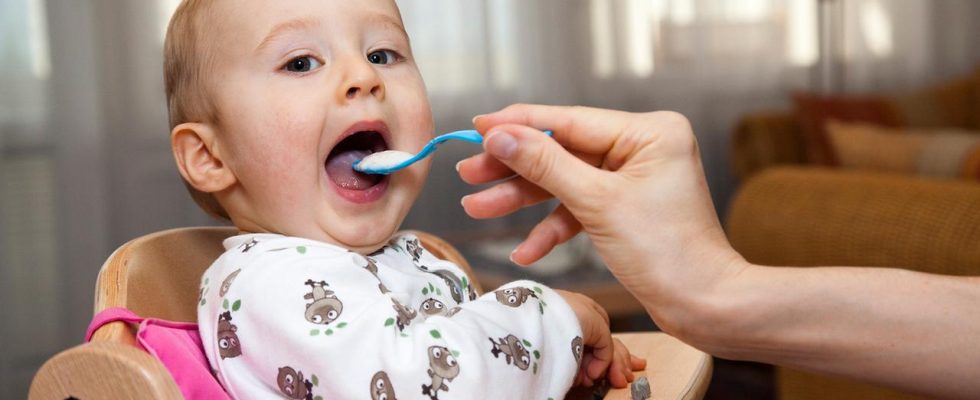Again criticism of Nestlé: The company is supposed to add sugar to various baby foods. Developing and emerging countries are particularly affected. Nestlé does not deny the allegations.
Nestlé is criticized more than almost any other food company. Whether because of trade with Russia, its drinking water business or – as is currently the case – because of its baby food. Loud an analysis by the Swiss non-governmental organization Public Eyethe company adds sugar to baby food in some countries.
According to analyzes by Public Eye and the International Infant Nutrition Action Network (IBFAN), a large proportion of the cereal products examined, such as porridge or instant muesli and milk powder for small children between one and three years of age, contained added sugar.
Developing and emerging countries are particularly affected, while large European markets such as Germany are not. “Nestlé is making babies and young children in lower-income countries addicted to sugar,” Public Eye alleges in the report that the organization published ahead of today’s general meeting of Nestlé shareholders. Public Eye called on Nestlé to end the “double standards”.
More than one sugar cube per serving
According to laboratory results, samples of certain follow-on milk products for young children from Germany, France and Great Britain did not contain any added sugar. However, in samples from countries such as Bangladesh, India, Pakistan, South Africa, Ethiopia and Thailand, between 1.6 and over five grams of sugar per serving were added. In some cases this corresponds to more than a lump of sugar that weighs four grams.
The laboratory also found a lot of sugar in cereal products for babies – including those sold in Europe. The company explained: In some countries in Europe there are products without added sugar, in addition to conventional products with added sugar. According to the analysis, the highest amount of sugar per serving, at over seven grams, was found in a Filipino product.
Nestlé does not deny the accusation
Nestlé did not dispute the results of the analyzes when asked. “We continue to develop and reformulate our infant cereal products to further reduce added sugar content without compromising quality, safety and taste,” it said in a statement.
Nutrition experts say that if children get used to the taste of sugar early on, they tend to turn to sugary products more often later on. This could lead to obesity or promote diseases such as diabetes. The WHO speaks out against advertising and for clear labeling of baby and toddler food with added sugar.
Nestlé milk powder advertising scandal in the 1970s
Nestlé was criticized for its baby formula in the 1970s because it advertised milk powder in developing countries. Many mothers thought this was healthier than their own breast milk. Because clean water was not available in many places, it put babies in danger. However, the company has long emphasized: “We support the recommendation of the World Health Organization (WHO) to exclusively breastfeed for the first six months of a baby’s life.”

